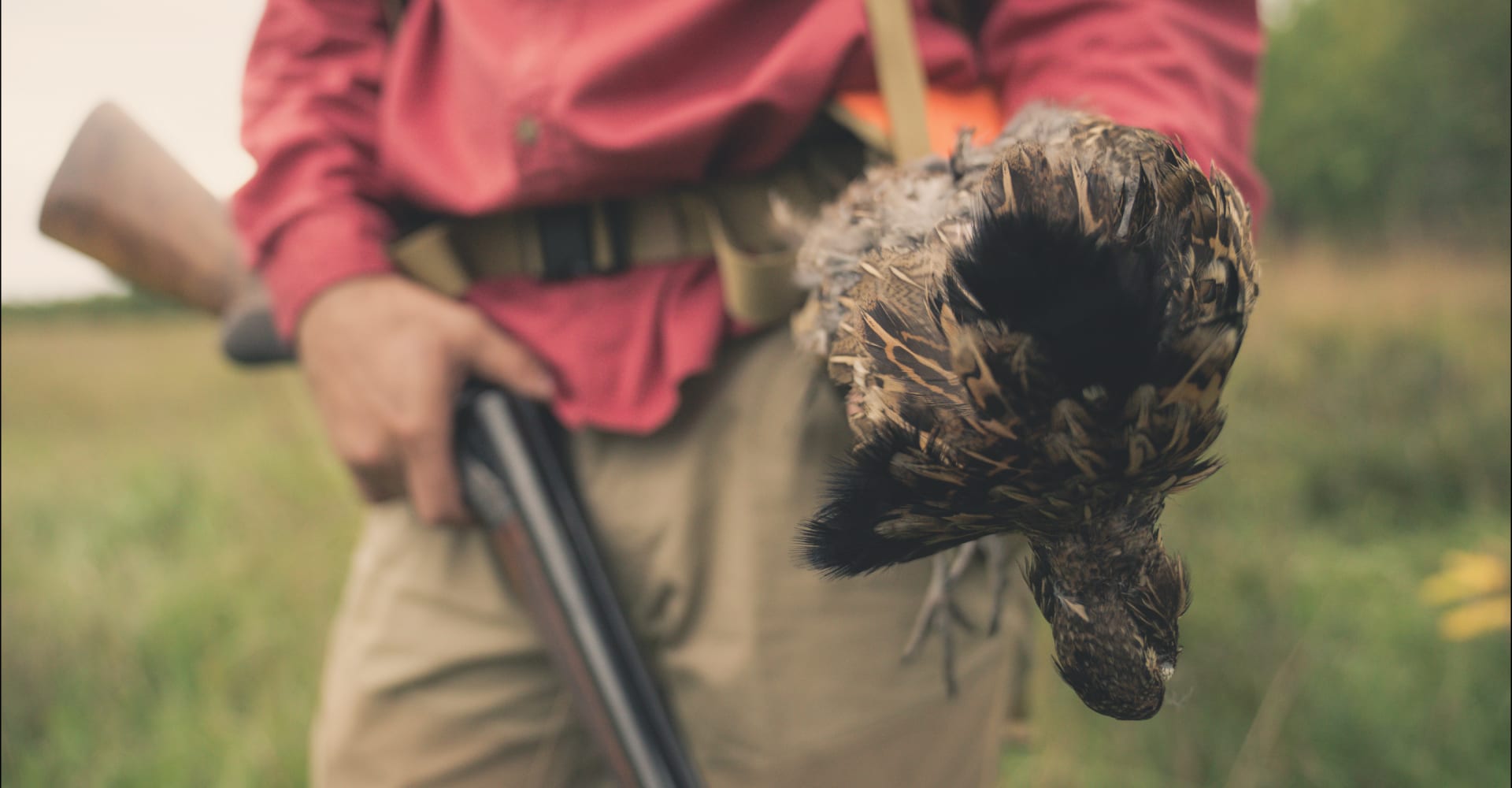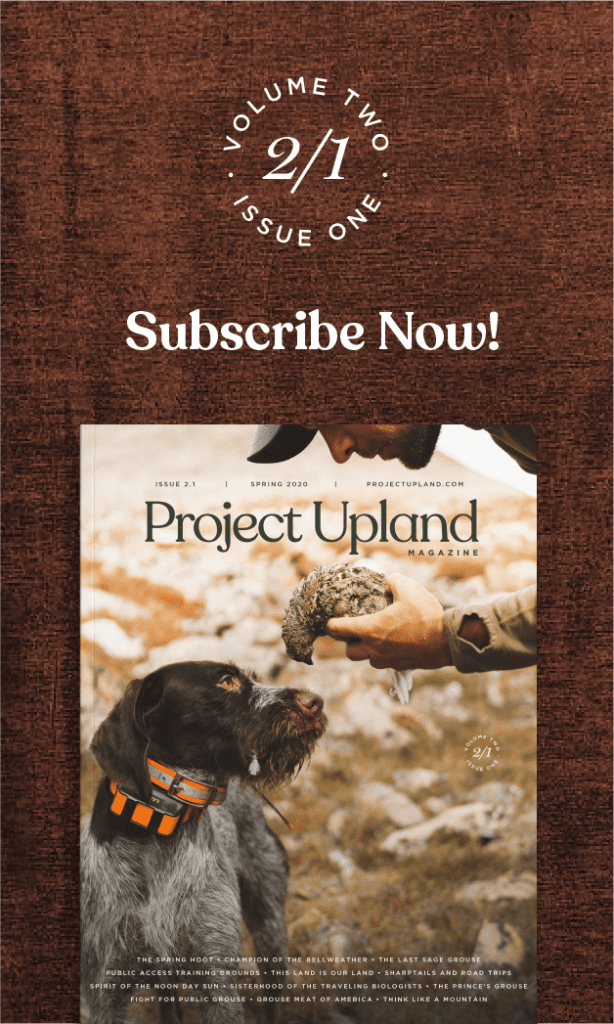What comes to mind when you hear hunting referred to as a sport?
This may be a sore subject for many and it may take some time to wrap your head around. But much is at stake, and we suggest that it’s worth considering some thoughts and recent research when it comes to utilizing the word sport in reference to hunting – especially when it comes to R3 in hunting.
Historically, in the context of hunting this term dates back to the 16th century in Britain where royalty would truly head afield and compete against one another in the act of hunting. Fast forward to the end of the 19th century and we find ourselves at the origination of the usage of sport as the majority of the hunting community understands and references it today.
The use of the word sport in hunting today is something we as hunters don’t even think twice about. Going back to that late 19th century origination, to most already involved in hunting, we picture the word sport representing fair chase and giving the wildlife a “sporting” chance at survival, a true and accurate statement in the 19th century after hundreds of years of market and pot hunting. It was Teddy Roosevelt’s era that coined the term “sport hunting” in a true and positive sense.
Unfortunately, those days are all but gone. Advancements in modern society have changed almost every aspect of modern life. Like many other terms that have been around for millennia, the true definition of a word and the meaning of a word are not the same thing. The phrase “perception is reality” couldn’t be any more true.
In the midst of culture loss and an exponential need to maintain conservation funding, R3 is the next big thing. And we at Northwoods Collective truly believe that R3 is something that will be referenced in history books at the same level as the impact of Aldo Leopold and Teddy Roosevelt on conservation. While R3 is growing by leaps and bounds, it is still in its infancy. Just as those of you reading this article are laying the foundation for the future of R3, at the same time we are all clamoring to find ways to make it more effective.
As a media and marketing company dedicated to advancing R3, we are driving down a road not traveled by our marketing predecessors and trying to groom the trail for those that follow. While this is not something typical of most media/marketing companies, we are not selling products. We are selling lifestyles, and in an effort to better achieve that goal, we have adopted some evaluation tools and put them to good use.
In a recent survey that we conducted strictly amongst the followers of one of our numerous lifestyle brands – Project Upland – we put some extra effort into determining some of the realities and perceptions of common terminology used in the hunting community. Our token focus in this part of the survey was on the word sport and its use in regards to hunting. With high percentages of our brand following coming from non-traditional hunting demographics and even a fair number of outright non-hunters who follow the brand, the survey participants were ideal for aiding in our R3 marketing efforts.
We asked over 1,500 survey participants the exact same questions regarding the word sport and its use in reference to hunting. Now before we get into the fun stuff, let’s all be sure we know the true definition of the word sport.
Sport
/spôrt/
Noun
-
an activity involving physical exertion and skill in which an individual or team competes against another or others for entertainment.
While we are complete data geeks here at Northwoods Collective, we believe you will also find this information interesting and hopefully useful in your messaging efforts within the R3 realm. In all of the following questions we asked respondents to categorize themselves at a hobby or lifestyle level of participation or as someone who wants to become an upland hunter. Once respondents categorized themselves, they were asked to either agree or disagree at varying levels with the following questions and rate those answers in the following manner:
- Strongly Agree
- Agree
- Neutral
- Disagree
- Strongly Disagree
Question: I think the word “sport” accurately describes hunting?
| Strongly Agree | Agree | Neutral | Disagree | Strongly Disagree | |
| “I consider upland hunting a hobby or part of my lifestyle” | 30.38% | 36.81% | 21.53% | 9.79% | 1.49% |
| “I want to become an upland hunter” | 26.32% | 30.26% | 28.95% | 14.47% | 0% |
Question: I think hunting is an activity in which an individual competes against another or others for entertainment?
| Strongly Agree | Agree | Neutral | Disagree | Strongly Disagree | |
| “I consider upland hunting a hobby or part of my lifestyle” | 0.63% | 3.67% | 8.60% | 32.76% | 54.42% |
| “I want to become an upland hunter” | 1.32% | 1.32% | 5.26% | 28.95% | 63.16% |
Question: I think hunting should be competitive?
| Strongly Agree | Agree | Neutral | Disagree | Strongly Disagree | |
| “I consider upland hunting a hobby or part of my lifestyle” | 0.31% | 1.72% | 8.86% | 31.03% | 58.07% |
| “I want to become an upland hunter” | 1.32% | 1.32% | 5.26% | 28.95% | 63.16% |
As one can tell by the data – even hunters have a drastically different view when it comes to perception versus reality. When asked essentially the same question on their opinion/perception of the word sport in comparison with the definition, even hunters themselves have an overwhelming distaste for what the word sport actually implies in regards to hunting. If hunters don’t agree with it, how does someone who has no idea about the history of hunting perceive this notion?
As we mentioned in our article “R3 – Cracking The Recruitment Code Through Film,” we need to recognize that the motivations of the key demographics we are seeking are not the same motives this industry has been operating on for decades. The trophy one gets through hunting is the one we achieve as individuals, not as competitors. That is part of the negative stigma when we call hunting a sport. Sport implies competition. It does not imply conservation and sustainability.
To truly succeed in recruiting new participants we must ask ourselves some of the simplest of questions. Almost all forms of hunting media reference the word sport when it comes to hunting. Much of the work done thus far in R3 is directing us to aim recruitment strategies at non-traditional demographics. This is more easily said than done and in the process we need to understand the difference in motivations and values of this low-hanging fruit. Using the word sport is something that should be used with caution. Unlike angling where the term holds merit, there is no catch-and-release when it comes to hunting.




[…] Now that word “sport” got me worked up for sure. (if you haven’t read the article “The Word ‘Sport’ in Hunting”, please do.) I am someone strongly against the word when put in relation to hunting. But for […]
I have been thinking about this quite a bit lately! I think considering hunting as a sport, gives the anti’s too much power. Changing it to a lifestyle gives a much better and more accurate description of the entire lifestyle of hunting. Not just the chase, but the way we live!! Most of us do dedicate large portions of our income to hunting, guns, land, gear, safety equipment. It truly is a lifestyle. One of the few that is currently ok to discriminate against!!! Perhaps calling the lifestyle we actually enjoy a lifestyle by definition will give us a better chance of convincing new hunters to join us and a better chance of reducing the effectiveness of the anti’s!